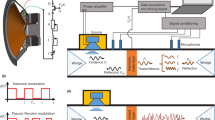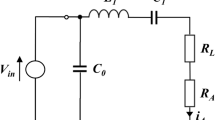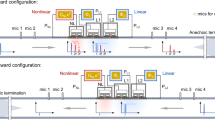Abstract
SIR AMBROSE FLEMING does not give us in his very able article any alternative explanation of the fundamental problem of the tuned circuit, namely, that the really selective circuit does cut off the higher audio frequencies, generally explained by the ‘cutting of the side bands’ What is actually happening? Does not the solution lie in the fact that the damping of a resonant system falls off as its selectivity increases? In our modern lightly damped receiver, the oscillation persists long after its excitation has ceased. If it is excited by a carrier modulated by a high audio frequency, the persistence of its vibrations will not allow the amplitude of these to vary with the modulated amplitude of the incoming wave and the modula tion gets flattened out, whilst with a low modulating frequency, or bass note, the slower rise and fall of the carrier amplitude gives time for the circuit oscillations to rise and fall with it and thus give a faithful reproduction.
This is a preview of subscription content, access via your institution
Access options
Subscribe to this journal
Receive 51 print issues and online access
$199.00 per year
only $3.90 per issue
Buy this article
- Purchase on Springer Link
- Instant access to full article PDF
Prices may be subject to local taxes which are calculated during checkout
Similar content being viewed by others
Author information
Authors and Affiliations
Rights and permissions
About this article
Cite this article
NEWBOLD, A. The ‘Wave Band’ Theory of Wireless Transmission. Nature 125, 306–307 (1930). https://doi.org/10.1038/125306b0
Issue Date:
DOI: https://doi.org/10.1038/125306b0
Comments
By submitting a comment you agree to abide by our Terms and Community Guidelines. If you find something abusive or that does not comply with our terms or guidelines please flag it as inappropriate.



